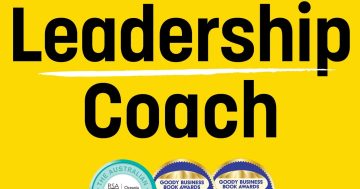Michael Bungay Stanier* says the ability to make time to think through situations and seek what lies beneath the surface, is an essential part of being a great leader.
 A willingness to explore what you don’t know is the foundation for leading more effectively
A willingness to explore what you don’t know is the foundation for leading more effectively
In theory, curiosity is an essential leadership behaviour. The business journals regularly proclaim curiosity’s value — but in practice, who has the time?
Sure, we can let the people in research and development indulge their curiosity, but the rest of us?
We’ve got strategies to implement, and oh so much email. Who has time for curiosity? Would it even be worth it if we did?
If you equate curiosity to dandy-ish meandering through fields of irrelevance, combined with dereliction of your stuff-to-do duties, then of course it’s not worth it.
However, curiosity should be thought of differently, as more tangible and more constrained.
In its essence it’s sensing the limits of your current knowledge and being willing to explore what you don’t know just a little longer.
In practice, that means knowing that the first thing which occurs to you is unlikely to be the best thing.
That a slight pause before commitment will allow other options to emerge, and that being able to make good decisions begins with understanding alternatives.
When you make curiosity a deliberate behaviour that’s repeatable, it becomes a source of three essential leadership virtues: Mindfulness, empathy and humility.
Each virtue can be built through the practice of asking a good question and when they combine, something magical happens.
Each feeds the others, creates a virtuous circle, and helps you change the way you lead forever.
If I was to ask you about mindfulness, you’d probably have both a definition and an opinion: Something like ‘be here now’ (definition) and ‘slightly sceptical’ (opinion).
The question you can ask yourself and others on a daily basis to help make mindfulness an everyday practice is: “What do I know to be true?”
It’s almost impossible to have a fast or a glib answer to this. It puts the focus in two places.
Externally, it starts the process of winnowing data, separate from the interpretation of that data.
That’s a revealing exercise, as it’s almost always true that a very small amount of data can generate vast amounts of opinion that can both trigger and confirm your biases.
Internally, it helps you acknowledge your subjective reality. It can help you identify how you’re feeling and also gain a meta-understanding of your own judgments.
When you’re more able to see what is true, and your opinion about what’s true, your decisions are likely to be more robust.
Now for empathy (but not in that touchy-feely way).
The old joke suggests that if you want to understand your enemy, walk a mile in their shoes, because then you’ll be a mile away from them, and you’ll have their shoes.
It’s also true that the ability to “walk a mile in their shoes” is one of the most common definitions of empathy.
Empathy is how you connect with the other person across from you, but it’s easy to not have that connection in our lives.
Our busy-ness and the nature of our organisations can lead us to default to seeing the other person as a role, a tool, a cog in the machine.
You harden your heart so you can get things done.
An everyday question that can disrupt that pervasive ossification is one that can be asked at the end of any conversation: “What needs to be said that hasn’t been said?”
It invites those issues that live on the margins into the centre of the conversation.
It can be the small stuff — the tiny irritants where the usual thing to do is swallow the annoyance and carry on with the relationship just slightly dinged.
It can be the big things — those that are laden with significance, where it’s never quite the right time to bring it up.
Most importantly, it’s an exchange, a mutual act of vulnerability that allows empathy to take root.
On to humility (but not the thinly-disguised boasting type).
Humility is often connected with a sense of abasement, of lowering yourself.
However, in these topsy-turvy days “I’m humbled” has also come to be shorthand for “I’m awesome and I fully deserve this award you’re giving me, and probably more”.
Assuming you’re not yet a professional athlete or movie star, a more helpful definition for humility is ‘being more self-aware’.
The twist here is that this definition embraces not only what you’re less good at, but also your strengths.
It acknowledges all of you, in your complicated, brilliant messiness.
That’s what ‘grounded’ means: you’ve got both feet on the ground, you know who you are, and where and how you stand.
The everyday question that you can ask yourself and that can keep you grounded is: “Who am I at my best?”
It’s not a question you’d typically associate with a sense of humility, but it invites the person not just to remember and acknowledge their strengths, but also those attributes that contribute to better relationships.
As with most things, the real power of these three attributes lies less in what they offer by themselves, and more in how they interact with each other.
Each virtue has potential blind spots, or shadows, for which the other two virtues fill in and compensate.
Curiosity is the foundation practice. By engaging in curiosity as a repeatable, deliberate behaviour, the three virtues of mindfulness, empathy and humility emerge.
Stay curious and you will change the way you lead forever.
*Michael Bungay Stanier is the Senior Partner at Box of Crayons, a company that teaches 10-minute coaching so that busy managers can build stronger teams and get better results.
This article first appeared on the Box of Crayons website.











